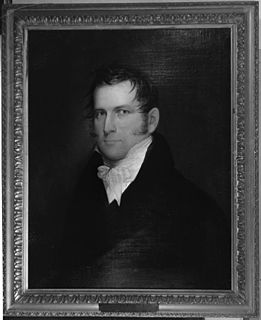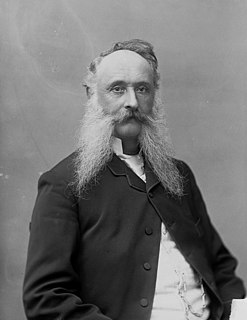Joseph Bédard (February 26, 1774 – September 28, 1832) was a politician in Lower Canada. He represented York from 1800 to 1904 and Surrey from 1810 to 1814 in the Legislative Assembly of Lower Canada.

The Province of Lower Canada was a British colony on the lower Saint Lawrence River and the shores of the Gulf of Saint Lawrence (1791–1841). It covered the southern portion of the current-day Province of Quebec, Canada, and the Labrador region of the modern-day Province of Newfoundland and Labrador.
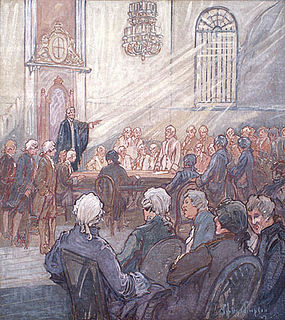
The Legislative Assembly of Lower Canada was the lower house of the bicameral structure of provincial government in Lower Canada until 1838. The legislative assembly was created by the Constitutional Act of 1791. The lower house consisted of elected legislative councillors who created bills to be passed up to the Legislative Council of Lower Canada, whose members were appointed by the governor general.
He was born in Quebec City, the son of Pierre-Stanislas Bédard and Marie-Josephte Thibault, and was educated at the Petit séminaire de Québec. Bédard went on to study law, was called to the bar in 1796 and set up practice in Montreal. In 1803, he married Marie-Geneviève-Scholastique Hubert-Lacroix. He did not run for reelection in 1804 or in 1814. Bédard served as a lieutenant in the militia, later reaching the rank of captain. He took part in the protests against the proposed union of Upper and Lower Canada in 1822. In 1829 and again in 1831, he was named King's Counsel. He died in Montreal at the age of 58.

Quebec City, officially Québec, is the capital city of the Canadian province of Quebec. The city had a population estimate of 531,902 in July 2016, and the metropolitan area had a population of 800,296 in July 2016, making it the second largest city in Quebec after Montreal, and the seventh largest metropolitan area and eleventh largest city in the country.
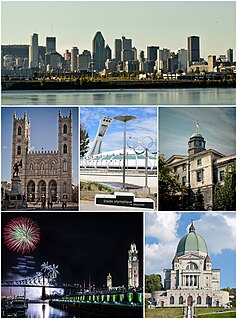
Montreal is the most populous municipality in the Canadian province of Quebec and the second-most populous municipality in Canada. Originally called Ville-Marie, or "City of Mary", it is named after Mount Royal, the triple-peaked hill in the heart of the city. The city is centred on the Island of Montreal, which took its name from the same source as the city, and a few much smaller peripheral islands, the largest of which is Île Bizard. It has a distinct four-season continental climate with warm to hot summers and cold, snowy winters.
His brother Pierre-Stanislas Bédard and his nephews Elzéar Bédard and Joseph-Isidore Bédard also served in the assembly. His daughter Marie-Stéphanie married Joseph Bourret.

Pierre-Stanislas Bédard was a lawyer, judge, journalist and political figure in Lower Canada.
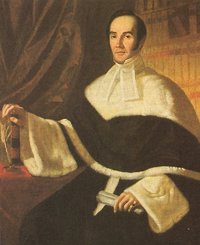
Elzéar Bédard was a lawyer and a member of the Legislative Assembly of Lower Canada. He later became a judge.
Joseph-Isidore Bédard was a lawyer and political figure in Lower Canada.



